I am writing a UnitTest using Catch2.
I want to check if two vectors are equal. They look like the following using gmplib:
std::vector<mpf_class> result
Due to me 'faking' the expected_result vector, I get the following message after a failed test:
unittests/test.cpp:01: FAILED:
REQUIRE( actual_result == expected_result )
with expansion:
{ 0.5, 0.166667, 0.166667, 0.166667 }
==
{ 0.5, 0.166667, 0.166667, 0.166667 }
So I was looking for a function that could do an approximation for me.
I just wasn't successful in finding a solution that worked out for me.
I found some Comparison Functions but they do not work on my project.
EDIT: The "minimal, reproducible example would simply be:
TEST_CASE("DemoTest") {
// simplified:
mpf_class a = 1;
mpf_class b = 6;
mpf_class actual_result = a / b;
mpf_class expected_result= 0.16666666667;
REQUIRE(actual_result == expected_result);
}
The "only" difference to my real application is that the results are stored in vectors. But because I am only "faking" the result by saying it is "0.1666666667" it probably doesn't fit the == anymore. So I need a function that takes an approximation and compares the range like epsilon = +-0.001.
Edit:
After implementing the solution @Arc suggested it worked well until I had some Values that were not complete "even".
So I have a failure with the following values:
actual 0.16666666666666666666700000000000000000000000000000
expected 0.16666666666666665741500000000000000000000000000000
Even though my "expected" value looks like this:
mpf_class expected = 0.16666666666666666666700000000000000000000000000000
Getting back to my original question if there is a way I can compare an approximation of the number with an epsilon of like +-0.0001 or what would be the best way to fix this issue?
